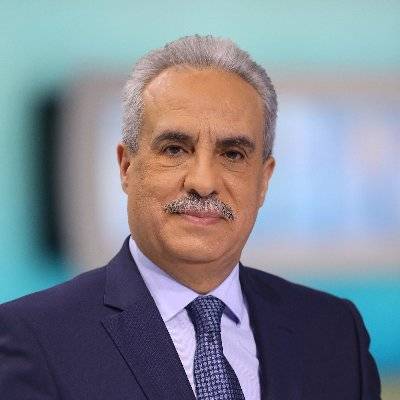The prosecutor of the International Criminal Court once proposed to issue an international arrest warrant for Syrian President Bashar Al-Assad, noting that there was a “strong case” against him. In an interview with the Canadian national broadcaster CBC, he said that the implementation of this warrant could be entrusted to international and local forces. The prosecutor expressed his regret that it was not planned to put this into practice, not least because sending foreign forces to arrest Assad would not constitute an invasion, it would serve to achieve justice. He noted that Assad was defiant because we — the international community — do nothing but talk.
To emphasise the latter fact, I must point out that the prosecutor in question was not the incumbent at the ICC, Karim Khan, but one of his predecessors, Luis Moreno Ocampo. Moreover, Ocampo made his statement in November 2012, less than two years after the uprising against Assad and before the atrocities committed by his regime became known to everyone.
If Ocampo said that the case for arresting Assad was “strong” in 2012, what must it be like now, after twelve years of violations, death and destruction that have turned half of the Syrian population into refugees and internally displaced persons? Why hasn’t the ICC still not seen any merit in issuing an arrest warrant against the Syrian president, and yet has rushed to issue one against Russian President Vladimir Putin just one year after his invasion of Ukraine?
READ: Putin, Sultan of Oman hold first phone call since establishment of diplomatic relations
There is no benefit, of course, in crying once more about the inaction of Western presidents and prime ministers who have committed documented atrocities in Iraq, Afghanistan and elsewhere with impunity. Nor is there any benefit in highlighting the obvious double standards that have kept every single one of Israel’s prime ministers safe from prosecution. As we know very well, they are apparently above the law and can also act with impunity. There also is no use in asking why, for example, the International Court of Justice is welcoming the demand of Sudan’s leaders to hand over ousted President Omar Al-Bashir for trial for the crimes he is being held responsible for in the Darfur region, because these leaders have been able to secure some “mitigating circumstances” thanks to their relations with Israel and the US.
Turning a blind eye to the crimes of which Bashar Al-Assad is accused is precisely what has enabled the world to accept, gradually and in varying degrees, the idea of his remaining at large and not facing anything more serious than reports by human rights organisations and some failed attempts to prosecute him. One such attempt was the case filed against him in March 2019 by a group of lawyers, the first to be filed against him at the ICC in The Hague. It was submitted on behalf of 28 Syrian refugees in Jordan, who said that they were forced to leave their country. They urged the court to investigate potential crimes against humanity since the beginning of the peaceful civil society protests against the Syrian regime in 2011 calling for a change of government.
It is true that Syria is not a member of the ICC, but neither is Russia, so why has the first been ignored but the latter hasn’t? And why pursue Putin only for his actions in Ukraine, but not in Syria in support of the Assad regime? Russia has been engaged in Syria since September 2015 as a partner in some very serious crimes committed in the country.
OPINION: A referendum on a new constitution is not the medicine that Tunisia needs
This international inactivity, especially since Barack Obama backed down from his “red lines” when Assad used chemical weapons against his own people, followed by Donald Trump’s empty threats, has diluted the whole story. Treading cautiously at first, the Arab countries then went full steam ahead to re-establish relations with the Syrian president, with total disregard for his half a million victims. This twisted the knife in their backs and rubbed salt into their wounds.
Normalisation with Syria under Assad does not differ in a moral sense from normalisation with Israel; those who have no shame about joining hands with Israelis who maintain a brutal military occupation over the Palestinians, will not be ashamed to do likewise with someone who has brutalised his people without mercy. Any free Syrian can only accept normalisation with the Damascus regime with extreme reluctance.
However, what is unacceptable as far as free Syrians are concerned is for their Palestinian brothers who identify themselves as part of the resistance and appeal constantly to the consciences of those near and far for their support, to initiate reconciliation with the Assad family despite their crimes against the Syrian people, and even against the Palestinians themselves. Assad’s crimes against the Palestinians are arguably even more serious than those committed by Israel.
In the end, there is no criminal among Middle East politicians that Western governments do not see. Whoever they want to keep immune from accountability is forgiven, though, no matter what they do. At the same time, the West only sees the victims that it suits “national interests” to see, and they ignore the others.
This article first appeared in Arabic in Al-Quds Al-Arabi on 29 March 2023
OPINION: What is the solution for Tunisia?
The views expressed in this article belong to the author and do not necessarily reflect the editorial policy of Middle East Monitor.

![Russian President Vladimir Putin meets with Syrian President Bashar al-Assad [MIKHAIL KLIMENTYEV/SPUTNIK/AFP via Getty Images]](https://i0.wp.com/www.middleeastmonitor.com/wp-content/uploads/2023/03/GettyImages-1235243000-scaled-e1678826625507.jpg?fit=920%2C613&ssl=1)







